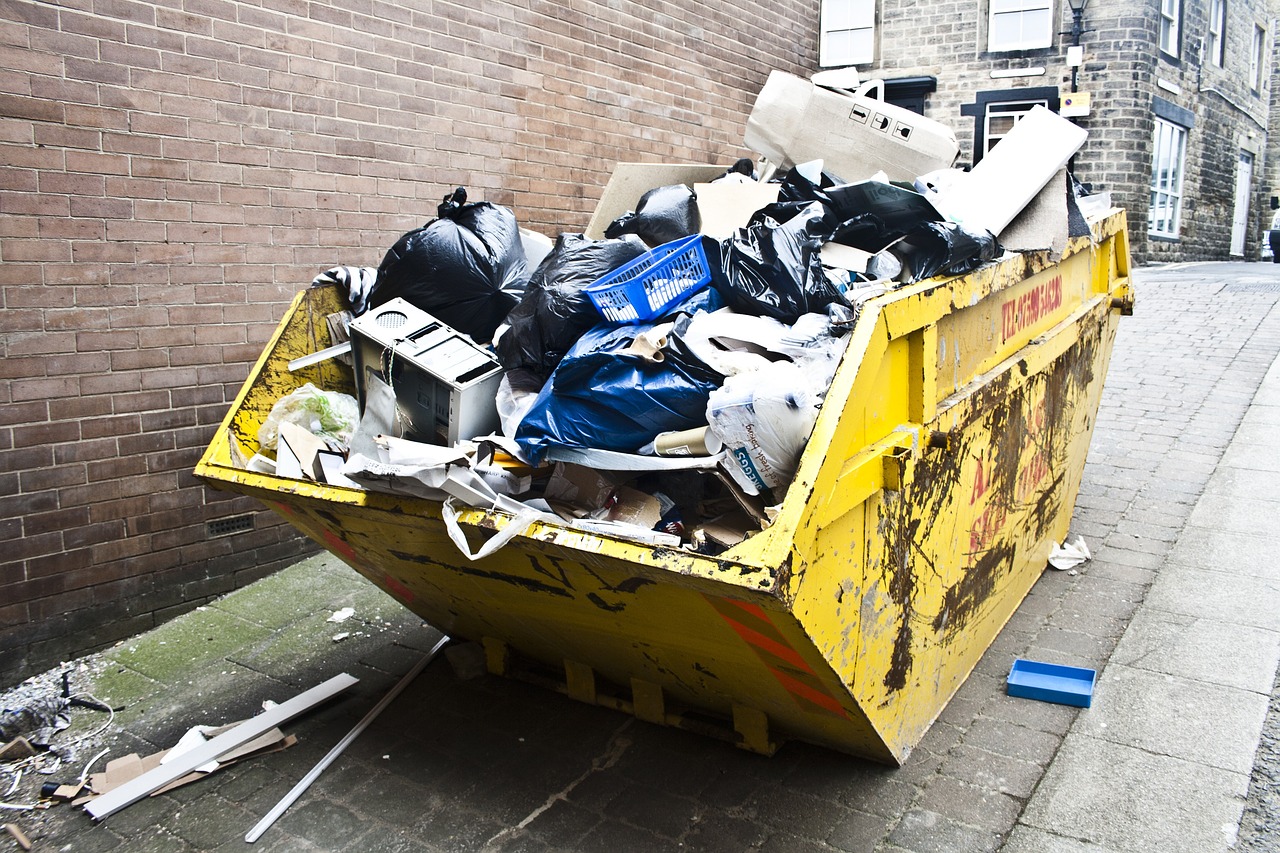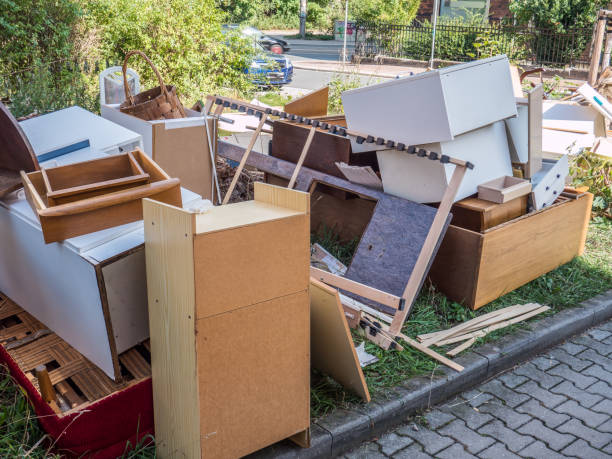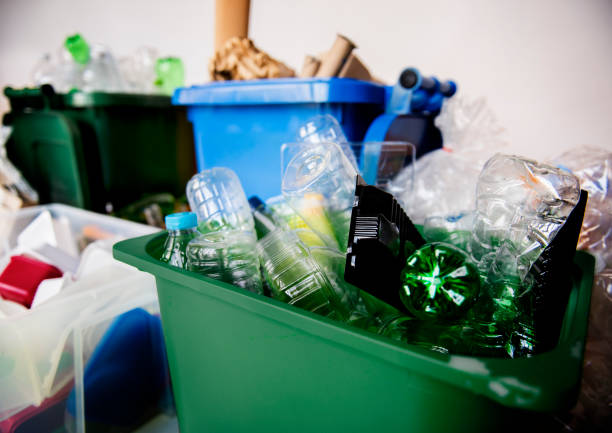Can you put any rubbish in a skip
Understanding the Importance of Proper Waste Disposal of items such as freezers, tin, and paint cans must follow specific guidelines.
Improper waste disposal isn’t just a mess – it’s a threat to our environment and health. Contaminated soil, water, and air harm ecosystems and wildlife, even accelerating climate change. Careless disposal allows pests to spread disease, while hazardous materials can cause long-term health problems.
Waste production has always been an issue, especially with hazardous materials that cannot be simply put into a skip. but industrialization and population growth make management a growing challenge. We need public awareness to ensure items like gas cylinders are not improperly placed in a skip. Stricter rules, including regulations around hiring a skip, can mitigate environmental damage. and sustainable practices to make responsible waste disposal a daily habit. Together, we can create a healthier future for all.
The Growing Concern of Improper Waste Disposal
The way we discard waste poses a significant threat to both our environment and ourselves. Irresponsible disposal practices have far-reaching consequences that demand immediate attention.
Environmental Devastation: When waste isn’t managed properly, it contaminates the very foundation of our planet. Polluted soil, water, and air harm entire ecosystems, wildlife populations, and ultimately, human health. Improper waste disposal also contributes to greenhouse gas emissions, accelerating global warming and jeopardizing the future of our planet.
Health Risks: Careless waste disposal directly impacts human health. Pests like rats and insects thrive on discarded waste, acting as carriers of diseases that can easily spread to humans. Additionally, hazardous substances released from improperly disposed waste can lead to long-term health issues for nearby communities.
A Growing Challenge: While waste generation has existed for centuries, the issue has become much more critical with industrialization. Rapid urbanization and population growth only exacerbate the difficulties of managing waste effectively.
Taking Action for Change: We can’t afford to wait any longer. Raising public awareness, implementing stricter regulations, and promoting sustainable practices are crucial steps in tackling this crisis. By working together, we can ensure that materials like paint tins and electrical items are disposed of correctly. we can make responsible waste disposal an integral part of our daily lives. This collaborative effort is essential to create a healthier planet and ensure a better future for all.
What is a Skip and Its Purpose in Waste Management
To understand what a skip is and its purpose in waste management, explore its definition and functionality. Discover the role of skips in waste collection and disposal.
The Definition and Functionality of a Skip
Skips are a key player in waste management, collecting and removing various waste materials. Their design allows for easy transport, loading, and unloading with specialized vehicles.
Let’s find out more about skips with this handy table:
| Column 1 | Column 2 |
|---|---|
| Definition | A big container for collecting waste |
| Functionality | Makes transport and disposal simple |
| Size and Capacity | Changes from small to large, can carry large loads |
| Types | Open, closed, roll-on roll-off skips |
| Loading Mechanism | By hand or machinery |
| Suitable Waste Materials | General waste, building rubbish, garden waste |
| Environmental Considerations | Follow good waste disposal methods |
Efficient and Versatile: Skips are constructed from robust materials to handle heavy loads. Their mobility allows for easy placement on-site, and skip hire services offer various sizes to suit specific needs.
Promoting Sustainability: Separating waste before disposal is crucial. This simplifies recycling efforts and minimizes environmental impact. Additionally, compacting waste within the skip maximizes space, reducing collection frequency.
Effective and Eco-Friendly: By combining waste separation and compaction, skips promote quicker and greener waste disposal. Separation facilitates recycling, while compaction allows the skip to hold more, reducing collection trips. Ultimately, these practices contribute to a more efficient and sustainable waste management process.
The Role of Skips in Waste Collection and Disposal
Skips are essential for waste management, mainly collecting and disposing of waste. They store and transport different kinds of waste safely and conveniently. Let’s find out more about their functions:
| Collection | Skips are positioned in areas like construction sites or residential areas. They act as temporary containers for waste, including general rubbish, recyclables, construction debris and more. |
| Transportation | Once filled, skips are taken to recycling centers or licensed disposal facilities with specialized vehicles. This minimizes the environmental impact. |
| Disposal | At recycling centers or licensed disposal facilities, the contents of skips are sorted and processed. Recyclables are separated for further processing and reuse, while non-recyclable or hazardous waste is disposed of properly. |
| Environmental Impact | Using skips helps prevent littering and illegal dumping. This keeps our communities clean and conserves the environment for future generations. |
Short-Term Solutions & Flexibility: Skips offer the benefit of short-term rental, perfect for specific projects or events. The availability of various sizes ensures a perfect fit for the amount of waste you need to dispose of.
Environmental Hero: Did you know? A whopping 80% of skip contents can actually be recycled! This highlights the importance of proper waste management in minimizing environmental impact. Waste2Resource emphasizes that recycling these materials preserves natural resources and reduces energy consumption during production.
MECE Magic: The MECE Principle (Mutually Exclusive, Collectively Exhaustive) aligns perfectly with skip hire, promoting effective waste management by encouraging the disposal of only the “pointless junk.”
The MECE Principle and Its Application to Skip Hire
The MECE principle (Mutually Exclusive, Collectively Exhaustive) can be a powerful tool for maximizing skip hire effectiveness and ensuring responsible waste management. Here’s how:
- Mutually Exclusive Categories: Clearly define different waste types to avoid confusion when placing materials in the skip. For example, segregate general waste from recyclables like paper, plastic, and metal. This prevents contamination and ensures each material goes to the appropriate processing facility.
- Collectively Exhaustive Coverage: Ensuring all hazardous materials, including gas cylinders and electrical items, are managed properly. Ensure your waste categories are comprehensive, leaving no room for “unidentified” waste. Consider including categories for hazardous materials, such as gas cylinders or electrical items, when hiring a skip. electronics, or garden waste that might require special disposal procedures.
By implementing the MECE principle, you can categorize your waste effectively, minimizing sorting errors and promoting responsible practices. This translates to a more efficient skip hire experience and a positive impact on the environment.
Mutually Exclusive: Categorizing Different Types of Waste for Skip Placement
Categorizing waste for skip placement is important for efficient disposal. By using the MECE principle, waste can be split into separate categories. Let’s take a closer look at how this works.
The table below shows different types of waste and the corresponding skip placements:
| Waste Type | Skip Placement |
|---|---|
| General Waste | 2-4 yard skip |
| Construction Debris | 6-8 yard skip |
| Garden Waste | 4-6 yard skip |
| Hazardous Material | Specialized disposal required |
This table can help us with proper handling and disposal. It also tells us about some unique details. For instance, general waste needs smaller skips due to its accumulation. On the other hand, construction debris needs larger skips due to its weight and volume.
We have to be precise when categorizing waste for skip placement. This helps with efficiency and creating a clean environment. So, let’s start categorizing our waste now! Remember, not following the rules on non-allowable waste could lead to a dumpster-diving disaster.
Non-Allowable Waste for Skips and the Risks Involved
Non-allowable waste for skips refers to materials that cannot be put in skip bins due to safety and environmental concerns. It’s essential to understand and follow these restrictions to avoid risks and ensure proper waste management.
Hazardous waste, such as chemicals, solvents, asbestos, gas cylinders, or batteries, should never be included. Liquid waste, like paint or oil, must also be avoided. Electrical appliances and electronic waste (e-waste) also can’t be disposed of in skips. Tyres, medical waste, and construction materials like plasterboard are all considered non-allowable.
It’s important to follow local regulations, as these may differ. Consult skip hire companies or local authorities for guidance on disposal methods. Understanding non-allowable waste helps ensure safe and responsible waste management, while minimizing the risks posed by hazardous materials that cannot be put in a skip. Waste Management World magazine notes that improper disposal of hazardous waste can lead to severe environmental damage and harm human health. Dumpster divers have their own version of the food pyramid, categorized by skip sizes and the types of waste they contain.
Categories of Allowable Waste for Different Skip Sizes
The MECE Principle is a great way to manage your waste in skip hire.
For the categories of waste that can be placed in different size skips, check out this table:
| Size (Cubic Yards) | General Waste | Garden Waste | Construction Waste |
|---|---|---|---|
| 2 | Yes | No | Yes |
| 4 | Yes | Yes | Yes |
| 6 | Yes | Yes | Yes |
| 8 | Yes | Yes | Yes |
You’ll observe that general waste is allowed in all sizes of skips. Garden and construction waste have special rules. This helps with efficient disposal and promotes sustainability.
Pro Tip: When choosing a skip, think about the waste categories for each size to make sure you get the best cost and environmental benefits.
Collectively Exhaustive: Ensuring All Waste is Properly Sorted and Discarded
In the pursuit of proper waste management, it is essential to sort and discard all waste. This minimizes environmental and health risks. MECE (Mutually Exclusive and Collectively Exhaustive) is a valuable tool to achieve this goal.
To highlight collective exhaustiveness in waste disposal, let’s look at this table:
| Waste Type | Proper Sorting? Know whether items like paint tins and freezers can be put into a skip. | Discarding Method |
|---|---|---|
| Plastic | Yes | Recycling |
| Organic | Yes | Composting |
| Glass | Yes | Recycling |
| Paper | Yes | Recycling |
| Metal | Yes | Recycling |
The table shows that each type of waste needs sorting before disposal. This reuses resources via recycling or composting.
Special disposal methods are sometimes needed for hazardous materials such as batteries or chemicals. This is to protect both the environment and people’s health.
According to Waste Transfer Ltd., recyclable materials make up 32% of household waste.
Proper waste segregation in skips is like keeping separate the belongings of your ex and your current partner. It keeps things clean and prevents mess.
The Importance of Proper Waste Segregation in Skips
It’s essential to properly segregate waste in skips. Here’s why:
A table outlines the benefits:
| Benefit | Description |
|---|---|
| Prevents Contamination | Separating waste avoids mixing different materials, reducing pollution and contamination. |
| Facilitates Recycling | Segregation allows easier sorting of recyclable materials, promoting recycling efforts. |
| Controls Environmental Impact | Waste segregation reduces landfill usage and conserves natural resources. |
| Enhances Waste Management | Efficient sorting simplifies waste handling and disposal. |
Plus, it helps meet legal regulations on disposal and management. This avoids penalties and keeps a good public image. Lastly, it identifies hazardous items like chemicals and sharp objects. This safeguards workers’ health and safety.
So don’t mix business with pleasure – except for paper and plastic recycling, and be cautious of what you put in a skip.
Tips for Efficiently Sorting Waste for Skip Placement
When it comes to skip hire, efficient waste sorting is key. Here are some tips to make it easier:
- Divide waste into categories like household, garden, or construction.
- Separate recyclables such as paper, cardboard, plastics, and glass.
- Handle hazardous materials separately.
- Factor in weight and volume when choosing the right skip size.
- Break down large items and compress materials.
For a successful skip hire experience, keep in mind these few pointers:
Place heavier items at the bottom for stability. No prohibited items allowed!
In ancient times, Romans had an organisational system for waste disposal. Waste collectors known as “litterarii” roamed Rome with carts collecting rubbish from designated spots. They understood the importance of sorting waste correctly.
So, don’t take chances with prohibited items! Otherwise, you might get an unwelcome visit from the dumpster police.
The Consequences of Putting Prohibited Items in a Skip
To understand the consequences of putting prohibited items in a skip, delve into the legal implications and penalties for inappropriate waste disposal. Explore the environmental impact that arises from improper waste management and the urgent need for responsible waste practices.
Legal Implications and Penalties for Inappropriate Waste Disposal
Ignorance isn’t an excuse when it comes to waste disposal. Improper disposal of waste can lead to serious legal and environmental consequences.
Know the Law, Avoid the Fine: Understanding waste management regulations is crucial. Violations can result in hefty fines, legal action, and even imprisonment for individuals or businesses.
The Dangers of Skipping the Rules: Skips are not a free-for-all. Certain items, like hazardous chemicals, asbestos, or electronics, are strictly regulated due to their potential harm. Disposing of these in skips is illegal and poses significant risks to human health and the environment.
Watchful Eyes: Ensuring Compliance: Authorities closely monitor waste management practices through regular inspections. If prohibited items are found, the responsible party faces legal repercussions, including substantial fines that can cripple personal or business finances.
Beyond the Law: The Environmental Impact: The consequences of improper waste disposal extend far beyond legal trouble. Disposing of hazardous materials in skips can contaminate soil and water sources, causing long-term ecological damage. Exposure to these toxins can also harm human health and lead to various illnesses.
Be a Responsible Disposer: Everyone has a role to play in proper waste management. Follow local regulations when disposing of waste and seek guidance on handling specific materials if needed. Knowledge and responsible action ensure compliance with the law, protect our environment, and safeguard human well-being.
Environmental Impact and the Need for Responsible Waste Management
Disposing of hazardous materials in skips is not just irresponsible, it’s a major threat to our environment. Proper waste management is essential for a healthy planet, and that means keeping prohibited items out of skips.
Environmental Devastation from Improper Disposal: Hazardous materials and electronics in skips or landfills can leak harmful chemicals and toxins into the soil. These toxins contaminate the environment, impacting plants, animals, and even human health.
The Power of Responsible Waste Management: Responsible practices like recycling and safe disposal are crucial for managing hazardous waste. Recycling allows us to recover valuable resources instead of depleting natural reserves, while safe disposal protects the environment and promotes sustainability.
Combating Climate Change: Recycling also reduces our carbon footprint. It takes less energy to reprocess existing materials than to manufacture new products from scratch. This translates to fewer greenhouse gas emissions, helping combat climate change and ensuring a healthier planet for future generations.
Learning from the Past: The Love Canal tragedy in New York serves as a stark reminder of the consequences of poor waste management. Improperly disposed of toxic chemicals leaked for years, causing serious health problems for residents.
A Collective Responsibility: Regulations exist to prevent such disasters, but responsible waste management requires a collective effort. Individuals must be aware of what can be legally put in your skip to avoid penalties. businesses, and governments all have a role to play in prioritizing proper disposal practices.
Be a Part of the Solution: Recognizing the negative impact of prohibited items in skips is the first step. Let’s work together to develop strategies that ensure our planet’s safety. Responsible skip use starts with you! Make informed choices and prioritize responsible waste management for a healthier future.
Conclusion: Responsible Skip Usage and the Importance of Choosing the Right Skip Hire Service
Choosing the right skip hire service is crucial for responsible waste management. Construction debris, household waste, garden trimmings, and hazardous materials all require specific disposal methods. A reliable service ensures your waste is handled according to regulations, minimizing environmental impact.
Expertise matters. For hazardous materials like asbestos or chemicals, specialized disposal is essential. Choose a service provider experienced in handling these materials to guarantee safe and compliant disposal.
Skip size also plays a role. Optimizing for your waste volume reduces unnecessary costs and ensures efficient use of resources. A professional service can recommend the perfect size to fit your needs.
By selecting a trusted local service that understands your waste disposal requirements, you make a responsible choice for the environment. Maximize your impact and streamline your waste removal process – every decision you make counts!







